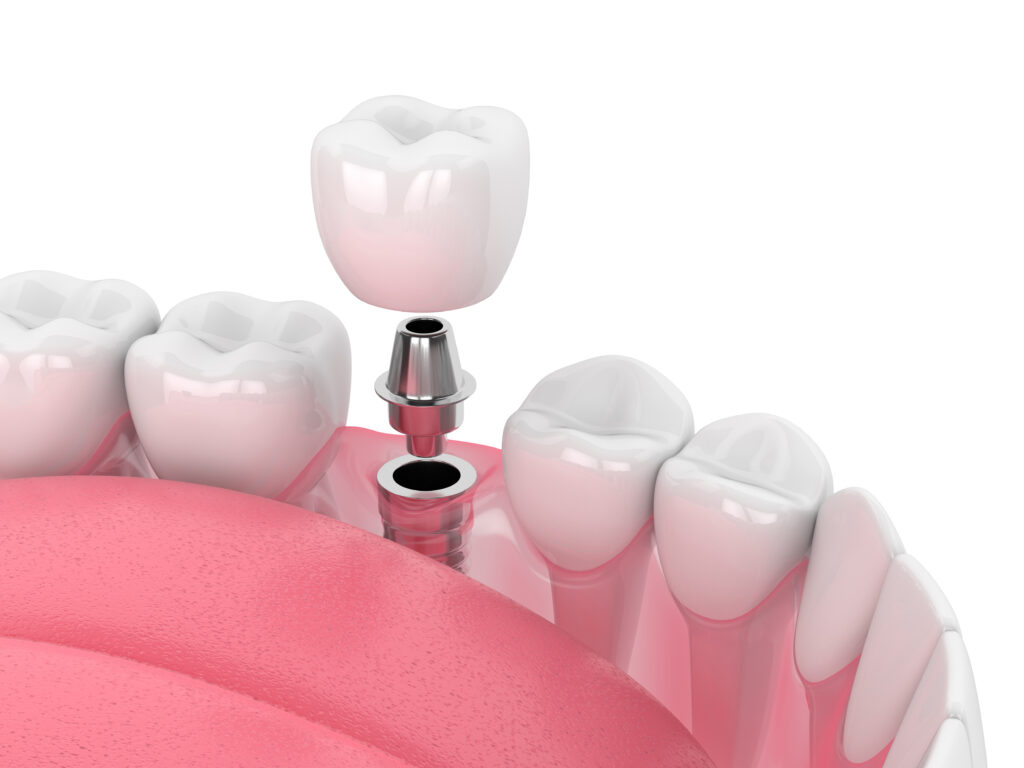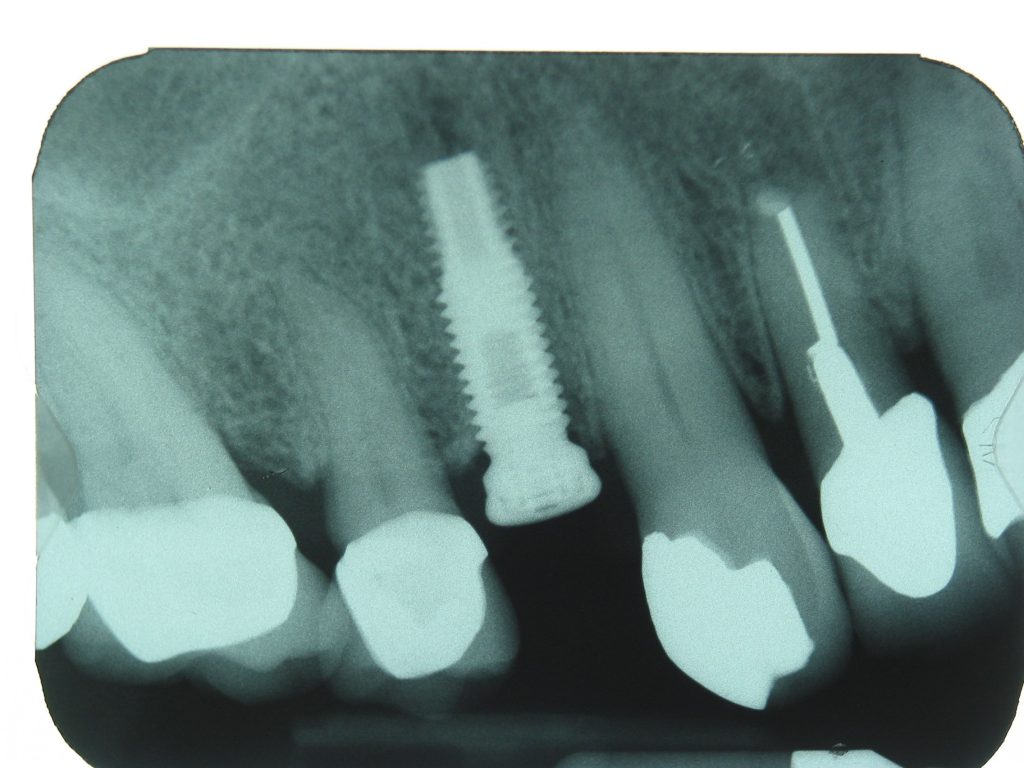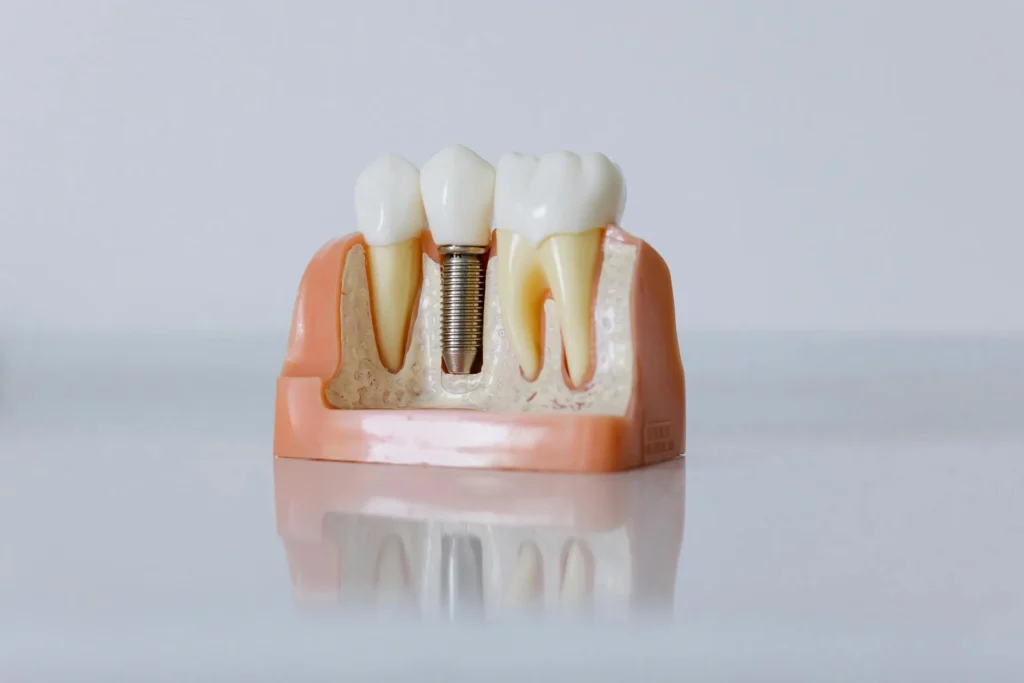Dental implants are kind of the gold standard when it comes to replacing missing teeth. They’re strong, natural-looking, and built to last—basically everything you want in a long-term dental solution. But before you jump in, it’s worth getting the full picture. Like anything in life, implants come with some big upsides… and a few things to think about. We’ve broken it all down for you, so you can decide if this option really fits your goals, your lifestyle, and your budget.
What Are Dental Implants, Really?
Let’s start with the basics. A dental implant is a small titanium post that gets placed in your jawbone—it acts like the root of a natural tooth. On top of that goes a connector (called an abutment), and finally, a custom-made crown that looks and feels just like the real thing.
Now, here’s the cool part: the implant doesn’t just sit there. Thanks to osseointegration (science speak for “bone and titanium become best friends”), the implant fuses with your jaw, giving you a stable, long-term foundation that won’t slip, shift, or fall out mid-meal.
Why People Love Dental Implants
1. Built to Go the Distance

Titanium is tough—like, aerospace-level tough, which makes it perfect for implants. With good care, your implant could last decades. Compared to bridges or dentures that may need replacing, implants are genuinely a long-lasting dental solution. Think of it as a one-time investment with long-term returns.
2. Natural Feel, Real Function
An implant isn’t just about looks (though it scores high there, too). It restores real function—chewing, talking, even laughing. There’s no wobble, no adhesive, no weird clicking. Just your bite, and we’re back in business.
3. Protects the Bone (and Your Face Shape)
Here’s something many people don’t realize: when you lose a tooth, your jawbone can start to shrink. But implants stimulate the bone, keeping it strong and stable. That helps preserve your natural facial structure—and avoids that “sunken” look over time. (Bone loss prevention is a real bonus here.)
Bone Preservation: Dental implants help maintain bone structure in the edentulous site, which is beneficial for overall oral health.
4. Low-Maintenance Living
Implants don’t require special care routines or extra tools- just brush, floss, and keep up with your check-ups. That’s it. Dental implant maintenance fits right into your regular routine.
5. Safe and Reliable
With proper placement and care, dental implants have a success rate north of 95%. That’s a stat we love. When done by a qualified professional, dental implant surgery is safe, predictable, and one of the most trusted procedures in modern dentistry.

Things to Consider Before Going All In
1. Yes, It Can Be Pricey
Let’s talk real numbers. Dental implant cost can be significantly higher than bridges or dentures, especially if you need multiple implants or additional procedures like bone grafting. But keep in mind: while the initial price tag might seem steep, the long-term value (and durability) often make it worth it. Some insurance plans may cover part of the procedure—but not all do, so check ahead.
2. It’s Not an Instant Fix
Implants aren’t something you walk into a clinic for and leave with an hour later. The process takes time—think consultation, surgery, healing (usually a few months), and crown placement. Patience is part of the package, but so is a pretty incredible result.
3. Health Requirements Matter
Implants work best when your mouth and general health are in good shape. If you have issues like uncontrolled diabetes, low bone density, or a weakened immune system, it doesn’t mean you can’t get implants—but your dentist will want to take a closer look first. Every smile is different.
4. Like Any Surgery, There Are Risks

Complications are rare, but they can happen—things like infection, nerve sensitivity, or sinus issues (for upper jaw implants). A good care team plus strong follow-up minimizes those risks, but it’s smart to be aware going in.
Cost + Coverage: What to Expect
A few things will influence the total cost of your implant journey:
- How many teeth you’re replacing
- Whether you need prep work (like a bone graft)
- The materials and lab used for your crown
- Your provider’s location and experience
Some insurance coverage may kick in, especially if the procedure is medically necessary. Still, many patients pay out of pocket. Ask your provider for a detailed estimate—and don’t hesitate to shop around or ask questions.
Patient Suitability: The Mayo Clinic outlines that ideal candidates for dental implants are individuals with missing teeth, sufficient bone to secure the implants, healthy oral tissues, and those without health conditions that can affect bone healing.
Final Thoughts on the Pros and Cons of Dental Implants
Dental implants can be a life-changer—literally. They bring comfort, confidence, and functionality back into your daily life, all while supporting long-term oral health, preventing bone loss, and keeping your smile looking (and feeling) like you.
But they’re also a commitment. There’s healing, upfront cost, and some important health factors to weigh in. The good news? You don’t have to figure it all out alone.
The best first step? Talk to a dental implant specialist. They’ll give you personalized insight, walk you through the options, and help you decide if implants are right for you. And if they are? Get ready to smile a whole lot more.

